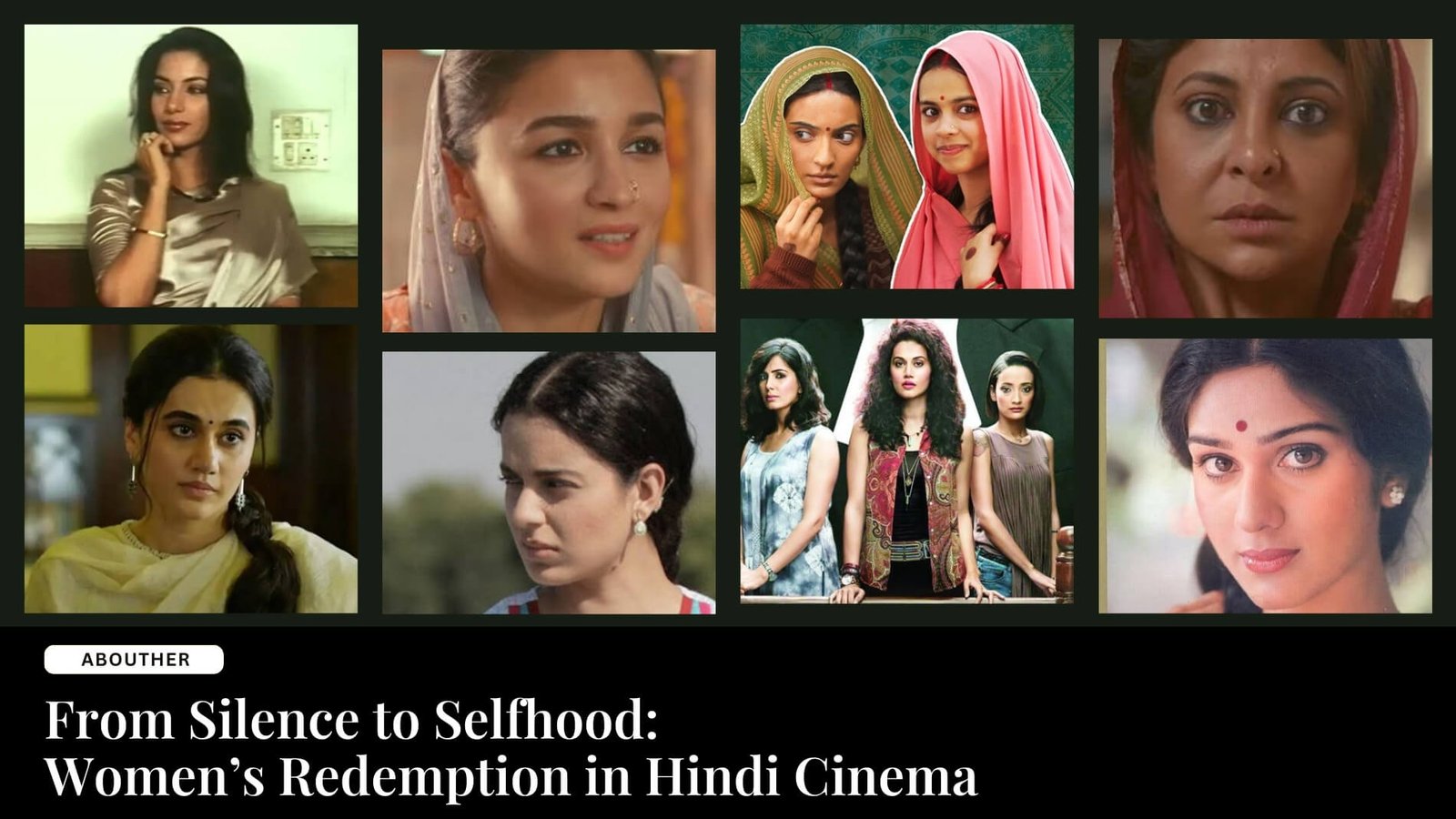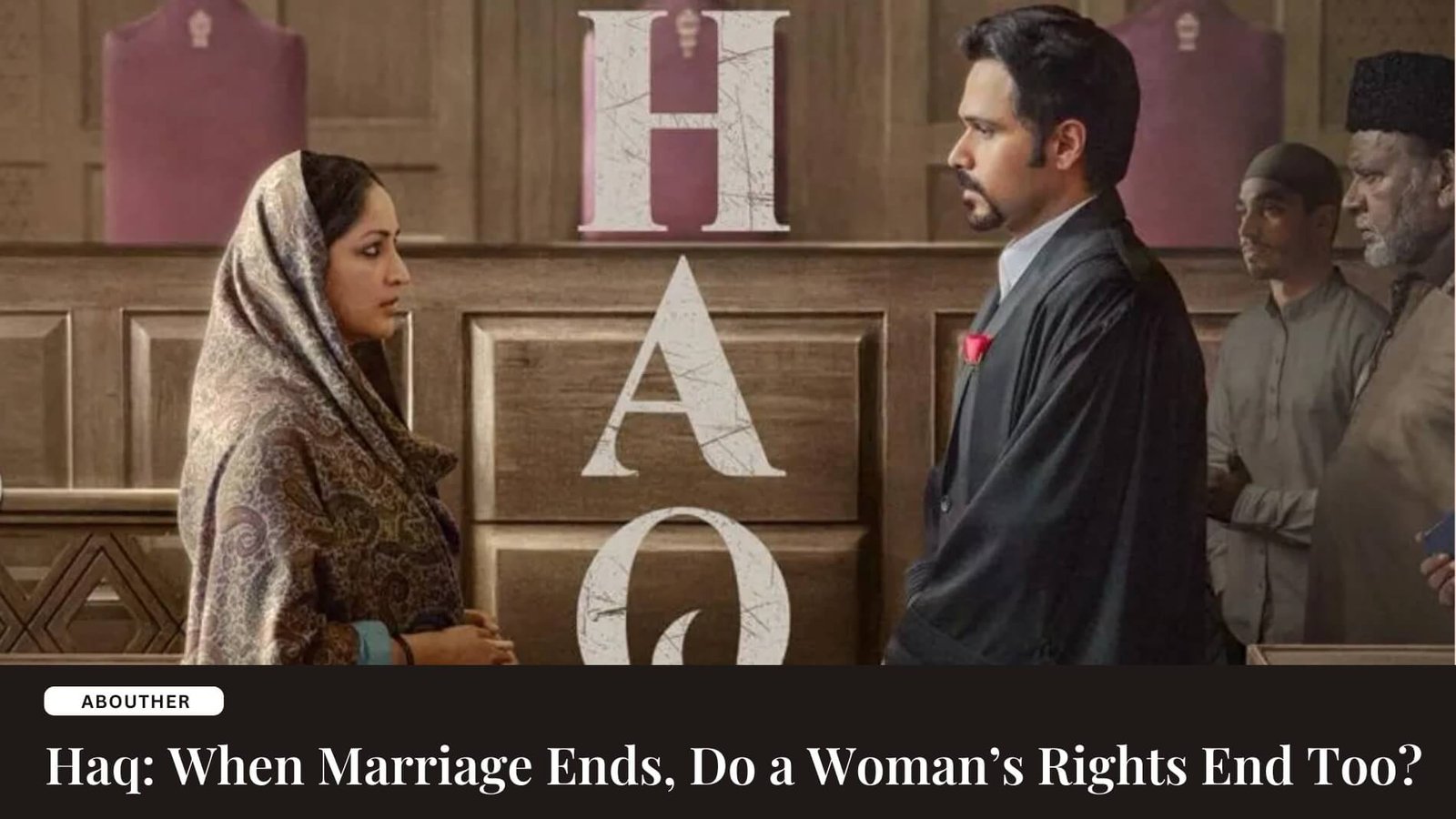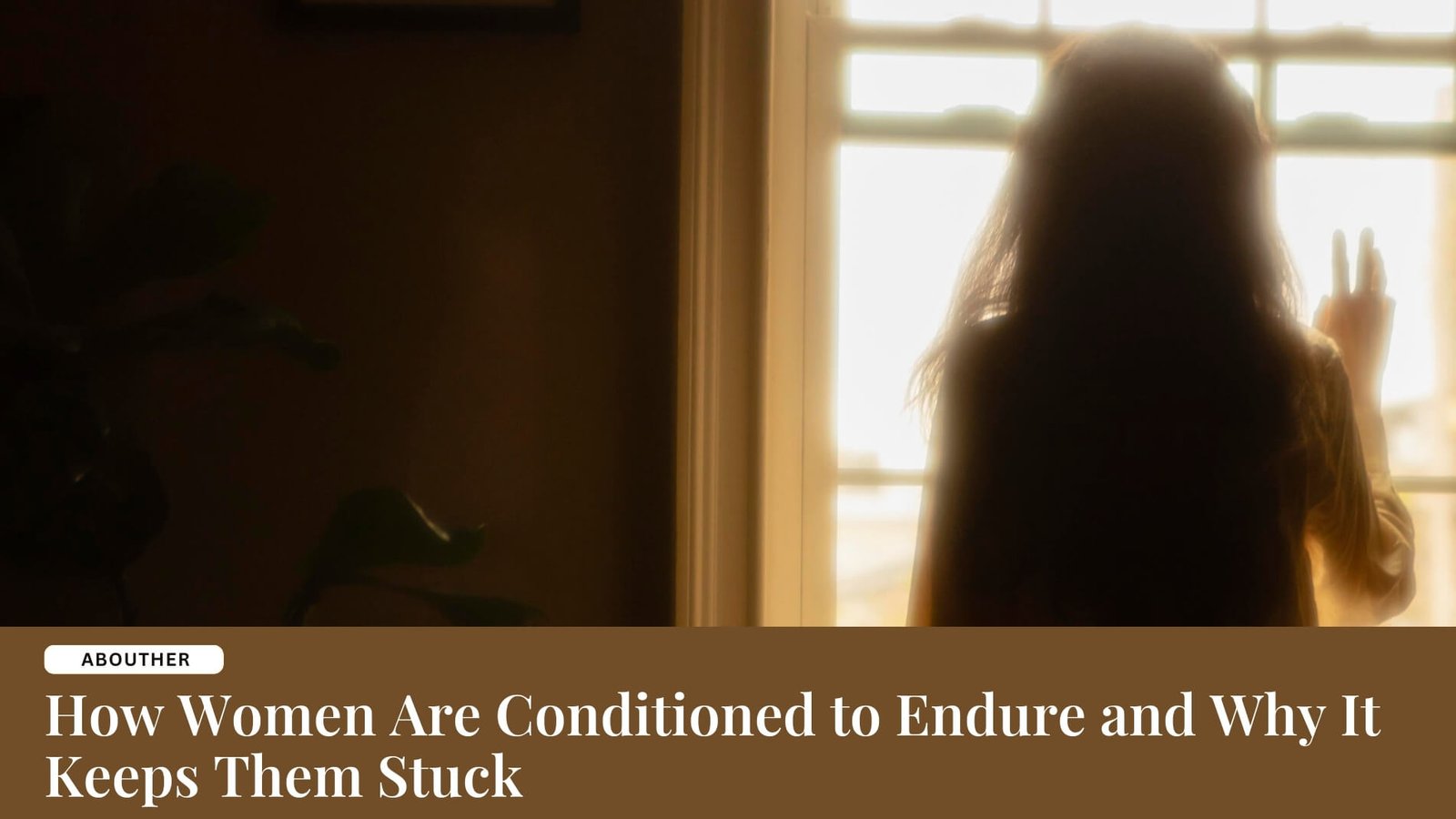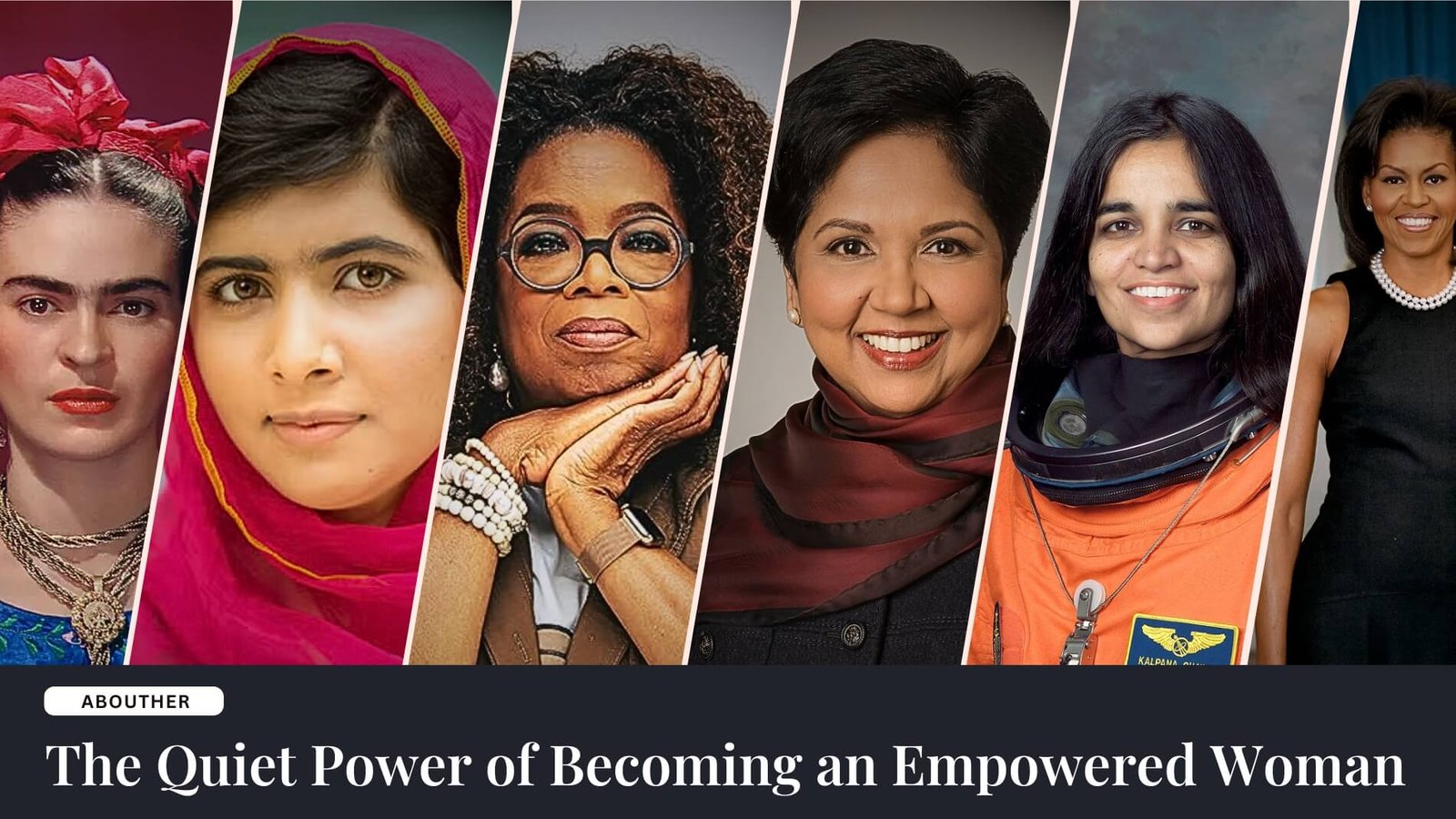From Silence to Selfhood: Women’s Redemption in Hindi Cinema
There’s a moment in Thappad (2020) that refuses to leave you. At a bustling party, a husband slaps his wife. Just one slap. But in that instant, Amrita’s entire world tilts. Everyone expects her to forgive, forget, and move on. Yet she doesn’t. She chooses to walk away, with dignity intact.
That single scene captures a truth Hindi cinema has slowly been learning to tell: redemption for women is no longer about endurance. It is about choice. It is about reclaiming voice, dignity, and joy.
The Old Script: Redemption Through Sacrifice
For decades, women in Hindi films redeemed themselves by suffering silently. They were the self-sacrificing mothers, the wronged wives, the martyrs whose virtue lay in how much pain they could bear. Their “happy ending” often came from forgiving, reconciling, or quietly carrying on.
But every once in a while, a film dared to ask: What if redemption meant something else?
Mahesh Bhatt’s Arth (1982) was one such turning point. Shabana Azmi’s Pooja, betrayed by her husband, does not return to him. She chooses instead to build her own life. That decision, simple, dignified, radical, questioned the idea that a woman’s identity must rest on a man’s shoulders.
A decade later, Damini (1993) gave us another bold heroine. Witnessing a rape in her household, Damini refuses to stay silent, even as her own family pressures her into submission. Her redemption comes not from preserving “family honour,” but from seeking justice. She stands, quite literally, as the lone voice of truth in a sea of suppression.
Both these films cracked open the door. They told audiences that redemption could lie in courage and self-reliance, not just sacrifice.
A New Language: Redemption as Discovery
Fast forward to 2014. Audiences meet Rani Mehra in Queen. Jilted at the altar, Rani does something unthinkable, she goes on her honeymoon alone. What begins as humiliation turns into liberation. In Paris and Amsterdam, she discovers freedom, laughter, and a new version of herself.
Also Read: 5 Ways “Workin’ Moms” Can Find Real Work-Life Harmony
What made Queen special was its tone. Rani’s redemption was not heavy with morality or courtroom battles. It was joyful. Messy. Relatable. It said that heartbreak can be a beginning, not an end. For Indian audiences used to women weeping on screen, here was a woman dancing, drinking, laughing, and living.
Redemption in the Age of Dignity
The 2020s brought sharper, bolder stories.
In Thappad, Amrita’s refusal to “move on” redefined dignity. She wasn’t seeking revenge, she wasn’t making a spectacle, she was simply saying no. A single act of violence, no matter how small, could not be normalised. Her redemption lay in walking away.
Two years later, Darlings (2022) approached the same issue of domestic abuse with dark humour. Alia Bhatt’s Badru initially tries to reform her abusive husband, but when hope runs dry, she turns the tables. It was redemption as rebellion, taking back control in unexpected, even shocking ways.
And then came Laapataa Ladies (2024), Kiran Rao’s gentle yet powerful tale of two brides accidentally “lost” in a rural train mix-up. For one of them, Phool Kumari, the loss becomes liberation. She refuses to return to her old life of restrictions and instead creates a new identity. Sometimes, the film suggests, redemption comes not from planning but from serendipity, a mistake that opens a door.
Together, these films sketch a striking evolution. Women no longer need to justify leaving, fighting, or dreaming. They don’t have to wear the halo of sacrifice. Their redemption is in self-respect, independence, and the courage to choose themselves.
What These Stories Really Tell Us
Taken together, these films show how far Hindi cinema, and, by extension, Indian society, has come in imagining women’s journeys.
- Arth and Damini framed redemption around moral strength, women standing tall in the face of betrayal or injustice.
- Queen shifted the lens to self-discovery, making room for joy and freedom.
- Thappad, Darlings, and Laapataa Ladies deepened the conversation into dignity and agency, exploring abuse, power, and choice in ways that resonated with a new generation.
The common thread? Women refusing to be passive. Whether it is walking away from a toxic marriage, fighting a courtroom battle, or dancing in the streets of Amsterdam, these women save themselves.
Also Read: When Mothers Stay Silent- The Painful Cycle of Emotional Abuse in Families
Why It Matters
When audiences watch these films, they are not just watching fiction. They are seeing possibilities. A woman leaving a marriage in Arth in 1982 was radical; today, it sparks conversations about dignity and equality. A lone voice like Damini’s in 1993 paved the way for collective demands like “No means No” in Pink years later. Rani’s carefree laughter in Queen still inspires young women to take their first solo trips.
Cinema, after all, does more than entertain. It shapes imagination. And in shaping women’s redemption as selfhood, it is also telling society: women do not need to endure silently. They can choose, fight, walk away, laugh, rebuild, and thrive.
Closing Note
From Pooja in Arth to Amrita in Thappad, from Damini’s truth to Rani’s discovery, from Badru’s rebellion to Phool Kumari’s quiet liberation, Hindi cinema has rewritten the script of women’s redemption.
No longer is it about sacrifice. It is about courage.
No longer about silence. It is about voice.
No longer about endurance. It is about dignity.
And perhaps that is the most powerful message of all: women redeem themselves not by being what society wants them to be, but by becoming who they truly are.
Share This On Social
![Sangeeta-Relan-AH-525×410[1]](https://aboutherbysangeeta.com/wp-content/uploads/2024/06/Sangeeta-Relan-AH-525x4101-1.jpeg)
I’m Sangeeta Relan—an educator, writer, podcaster, researcher, and the founder of AboutHer. With over 30 years of experience teaching at the university level, I’ve also journeyed through life as a corporate wife, a mother, and now, a storyteller.















